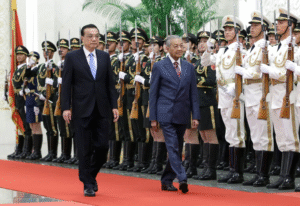Former U.S. President Donald Trump has issued a stern warning to China, declaring that his administration would impose a 200 percent tariff on Chinese goods if Beijing restricts exports of vital materials, including industrial magnets. Speaking during a campaign event, Trump emphasized that the United States must remain self-reliant and should not allow China to control access to key components critical for manufacturing and defense.
Trump, who is seeking another term in office, argued that China’s dominance in the production of rare earth elements and high-strength magnets poses a direct threat to U.S. economic stability and national security. He told supporters that his policy would be uncompromising, insisting that America cannot afford to be vulnerable to supply chain pressures from Beijing.
“They have to give us magnets,” Trump declared, highlighting concerns that restrictions on exports could impact industries ranging from automotive manufacturing to renewable energy. Magnets derived from rare earth materials are essential in producing electric vehicles, wind turbines, and advanced military equipment.
Economic experts note that Trump’s comments reflect a growing bipartisan consensus in Washington on reducing dependency on Chinese supply chains. In recent years, U.S. officials have sought to boost domestic production of critical minerals while exploring trade partnerships with allied nations.
Trump’s remarks are expected to reignite debate over trade policy, tariffs, and the balance between economic growth and national security. While supporters argue that tough measures are necessary to counter China’s influence, critics warn that steep tariffs could increase costs for American consumers and escalate tensions between the world’s two largest economies.
The latest warning comes as both Washington and Beijing navigate an already strained trade relationship, with disputes over technology, intellectual property, and global supply chains continuing to fuel uncertainty.






